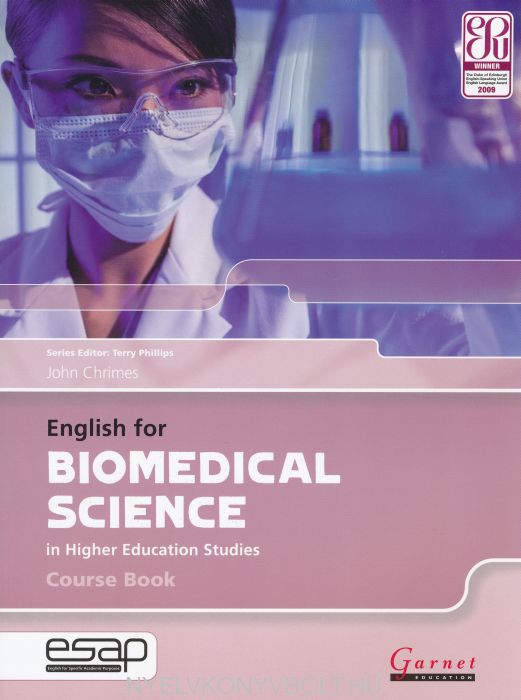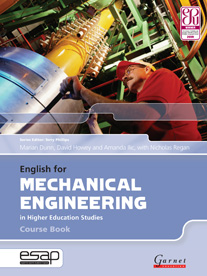Publisher: Garnet Education
Level: Upper intermediate to proficiency
CEF: B2 to C2
IELTS: 5.0 to 7.5+
[tabs style=”default”] [tab title=”Student’s Book”]
English for Biomedical Science is a skills-based course designed specifically for students of biomedical sciences who are about to enter English-medium tertiary level studies. It provides carefully graded practice and progressions in the key academic skills that all students need, such as listening to lectures and speaking in seminars. It also equips students with the biomedical science language they need to participate successfully within a business studies faculty. Extensive listening exercises come from biomedical science lectures, and all reading texts are taken from the same field of study. There is also a focus throughout on the key vocabulary that students will need.
-
- Listening: how to understand and take effective notes on extended lectures, including how to follow the argument and identify the speaker’s point of view.
-
- Speaking: how to participate effectively in a variety of realistic situations, from seminars to presentations, including how to develop an argument and use stance markers.
-
- Reading: how to understand a wide range of texts, from academic textbooks to Internet articles, including how to analyze complex sentences and identify such things as the writer’s stance.
-
- Writing: how to produce coherent and well-structured assignments, including such skills as paraphrasing and the use of the appropriate academic phrases.
-
- Vocabulary: a wide range of activities to develop students’ knowledge and use of key vocabulary, both in the field of business studies and of academic study in general.
-
- Vocabulary and Skills banks: a reference source to provide students with revision of the key words and phrases and skills presented in each unit.
-
- Full transcripts of all listening exercises.
The Garnet English for Specific Academic Purposes series covers a range of academic subjects. All titles present the same skills and vocabulary points. Teachers can therefore deal with a range of ESAP courses at the same time, knowing that each subject title will focus on the same key skills and follow the same structure.
Key Features
-
- Systematic approach to developing academic skills through relevant content.
-
- Focus on receptive skills (reading and listening) to activate productive skills (writing and speaking) in subject area.
-
- Eight-page units combine language and academic skills teaching.
-
- Vocabulary and academic skills bank in each unit for reference and revision.
-
- Audio CDs for further self-study or homework.
-
- Ideal coursework for EAP teachers.
[/tab] [tab title=”Teacher’s Book”]
The Teacher’s Book includes:
-
- Comprehensive teaching notes on all exercises to help teachers prepare effective lessons
-
- Complete answer keys to all exercises
-
- Full transcripts of listening exercises
-
- Facsimiles of Course Book pages at the appropriate point in each unit
-
- Photocopiable resource pages and ideas for additional activities
[/tab] [tab title=”Contents”]
Contents
Unit 1: What is biomedical science?
Unit 2: What do biomedical scientists do?
Unit 3: Human body systems
Unit 4: Computers in biomedical science
Unit 5: Micro-organisms and disease
Unit 6: New drug development
Unit 7: Immunology and allergic reactions
Unit 8: Genetics and medicine
Unit 9: Food safety
Unit 10: Animal testing
Unit 11: Stem cell research
Unit 12: Laboratory reports
[/tab][/tabs]





